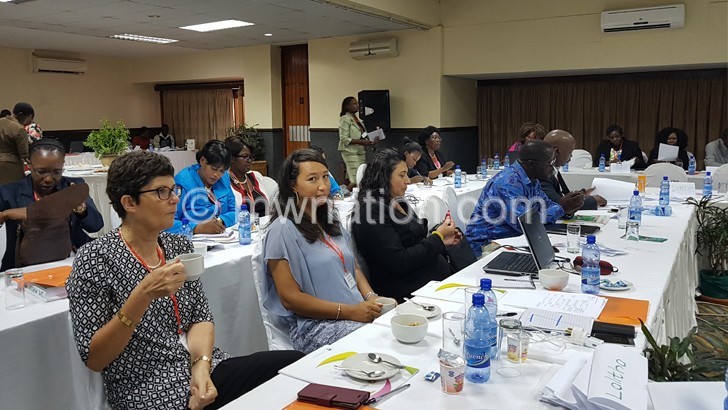Malawi, SA in judicial exchange
Women judges associations from Malawi and South Africa have come together in a judicial exchange to share knowledge on challenges they face in discharging their duties as well as the effective running of their associations.
The two-day judicial exchange programme held in Lilongwe over the weekend brought together judges of the Supreme Court and High Court as well as magistrates from Malawi and South Africa, the academia and various stakeholders deemed to have a crucial role in ensuring gender equality in the Judiciary is not mere rhetoric but culminates into action.

Women Judges Association of Malawi (Wojam) chairperson Esmie Chombo, a judge of the High Court of Malawi, said the association and the South African Chapter of the International Association of Women Judges, with support from the Democratic Governance and Rights Unit of the University of Cape Town, have come together in a bid to promote international interaction for its members to learn best practices in project management and ideas that would foster growth for the capacity of the organisation.
She said: “Wojam also seeks to promote gender equality and the appointment of more women into leadership positions. This is why it was seen imperative to rope in members of the academia and women who hold prominent leadership positions within our society so that by the end of the day we should have a well-balanced diagnosis of the pertinent issues surrounding gender and the law and leadership.”
In his keynote address, Malawi Supreme Court of Appeal judge Rezine Mzikamanda, who represented Chief Justice Andrew Nyirenda, said it was crucial for judicial officers to realise underlying issues that prevent women from taking up positions in fields that offer significant financial compensation or wield a lot of political power.
He said: “The world has an obligation to stand by and support women in their efforts. The advancement of an engendered Judiciary must be a holistic issue. It should involve both male and female members of the Judiciary.”
Mzikamanda added that this was why it was imperative that judicial exchanges which discuss the issues of gender justice must include everyone.
He said: “This inclusive approach becomes crucial when one realises that the high numbers of judicial officers are men. It is therefore pleasing to note that this judicial exchange is being attended by both male and female judicial officers.”
Participants in the programme included High Court of Malawi judges Charles Mkandawire and Sylvester Kalembera and Malawi Law Society (MLS) Lilongwe Chapter president Gilbert Khonyongwa.
The participants to the judicial exchange benefited from presentations on a wide range of topics, including Adjudicating Cases on Women’s Rights Against the Backdrop of Legal Pluralism, Research And Law: The Importance of Gender Issues, Gender Litigation: Perspectives from the Region as well as topics on mentoring, risk mitigation in justice dispensation and association work. n





